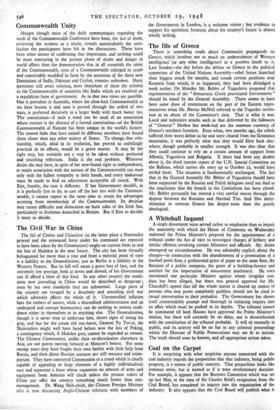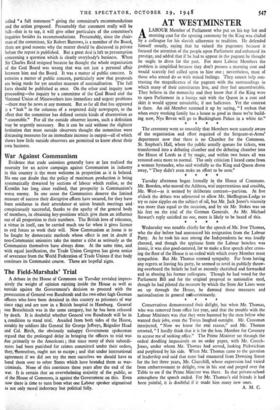Coal on the Carpet
It is surprising with what suspicion anyone connected with the coal industry regards the proposition that that industry, being public property, is a matter of public concern. That proposition looks like common sense, but is treated as if it were revolutionary doctrine. For example, it appears that the Burrows Committee which was set up last May, at the time of Sir Charles Reid's resignation from the Coal Board, has completed its inquiry into the organisation of the industry. It also appears that the Coal Board will publish what is called "a full statement" giving the committee's recommendations and the action proposed. Presumably that statement really will be full—that is to say, it will give other particulars of the committee's inquiries besides its recommendations. Presumably, since the chair- man of the committee, Sir Robert Burrows, is a member of the Board, there are good reasons why the matter should be discussed in private before the report is published. But a great deal is left to presumption concerning a question which is clearly everybody's business. When Sir Charles Reid resigned because he thought the whole organisation of the Coal Board was wrong that was not just a personal affair between him and the Board. It was a matter of public concern. It remains a matter of public concern, particularly now that proposals are being made for yet another measure of nationalisation. The full facts should be published at once. On the other coal inquiry now proceeding—the inquiry by a committee of the Coal Board and the National Union of Mineworkers into immediate and urgent problems —there may be news at any moment. But so far all that has appeared is a " leak " in the columns of a respected daily newspaper, to the effect that the committee has defined certain kinds of absenteeism as reasonable." For all the outside observer knows, such a definition may be urgently necessary. But it can be said without the slightest hesitation that most outside observers thought the committee were discussing measures for an immediate increase in output—all of which shows how little outside observers are permitted to know about their own business.



































 Previous page
Previous page